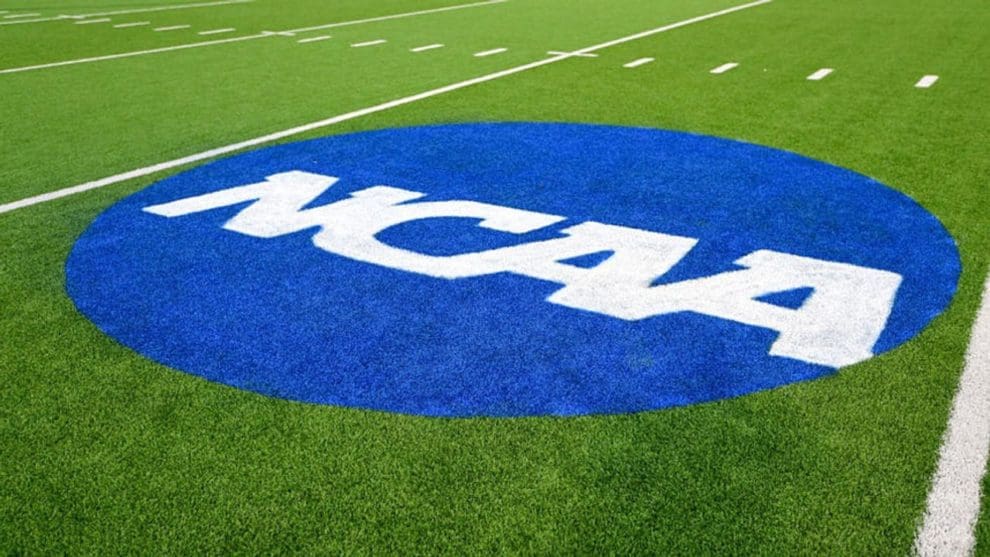
- The NCAA is allowing member schools and conferences to sell sports betting related data in information aggregators like Genius Sports and Sportradar.
- Over the past few decades, the NCAA did more to deny Americans the freedom to bet on sports than any other organizations.
- They’re now allowing their member schools to ‘follow the money’ and sign promotional and data deals with sportsbooks.
Democratic political advisor James Carvelle once uttered this great quote relative to Bill Clinton’s scandal involving former Arkansas state employee Paula Jones: “If you drag a hundred dollar bill through a trailer park, you never know what you’ll find.”
The same concept has been clearly seen since the US Supreme Court struck down the federal ban on sports betting in May 2018. Professional leagues and other organizations that had worked for years to deny Americans their right to bet on sports turned on a dime when they realized the potential financial windfall that was at hand. The NFL, NBA and NHL jumped on board the ‘money train’ almost immediately. The NCAA–the monolithic sanctioning body that runs college sports like Tony Soprano ran the ‘waste management’ business in suburban New Jersey–has been very slow in reacting. Since the NCAA likely did more harm to US gambling freedom than any other sports league, maybe they’re just trying to maintain a bit of integrity.
The NCAA fiefdom is beginning to crumble and at risk of becoming completely irrelevant over the next few years. That could be why they’re making this move now–they’re allowing member schools and conference to provide stats to sports wagering data companies ‘if that information is also available to the general public’. The NCAA released a memo to its membership interpreting their policies relative to sports betting at the request of the Mid-America Conference, who had signed a deal with Genius Sports last month. Rather than face another legal challenge that could further erode the NCAA’s control of college sports, they acquiesced. Here’s how Yahoo Sports explained the situation:
The NCAA’s memo is a response to a formal rules interpretation request filed earlier this year by the Mid-American Conference, which was looking for clarity about the organization’s sports betting restrictions. More specifically, the conference asked about Section 10.3 of the NCAA’s Division I manual, which states that athletes, university staffers and conference employees cannot “provide information” to anyone associated with sports wagering. That sentence could be interpreted as forbidding conferences from signing pricey data distribution deals.
This could be hugely lucrative for conferences, though for now at least they’re not allowing Genius Sports to sell the NCAA data to sportsbook clients. The distinction between ‘data aggregator’ and ‘sportsbook’ is meaningless here–both use the data to make sharper lines and to create live betting pricing algorithms. What the ‘no sales to sportsbook’ presumably means is that Genius Sports will have to leverage the data into some type of algorithm model or similar product and sell *that* to sportsbooks. This pointless restriction could be due as much to the NCAA’s sports betting ignorance than anything else.
Realistically, the NCAA doesn’t have a choice. They adapt to the new reality of sports betting or face a showdown with schools and conferences. The dynamic has changed dramatically since the NCAA’s personal vendetta against Jerry Tarkanian and UNLV basketball–they don’t have the power to prevail in a showdown with the major conferences or universities anymore. That’s why you’ve seen a number of universities sign promotional deals with sportsbooks. If the NCAA did try to restrict teams and conferences from making money off of sports betting it would prompt a legal challenge against deep pocketed opponents that they would probably lose.
The next couple of years will see the NCAA’s power over college sports continue to erode and member schools and conferences finding new avenues with which to monetize sports betting.









